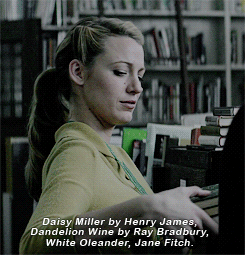"Dandelion wine. The words were summer on the tongue. The wine was summer caught and stoppered."
‚ÄúI want to feel all there is to feel, he thought. Let me feel tired, now, let me feel tired. I mustn't forget, I'm alive, I know I'm alive, I mustn't forget it tonight or tomorrow or the day after that.‚Ä�
Doug (12) and Tom (10) Spaulding live in Green Town, Illinois. Bradbury published this book in 1957, though you can see why this became popular in the late sixties, celebrating summer and nature as it does. As Bradbury says in an introduction to a later edition, ‚ÄúGreen Town. Waukegan. Byzantium.‚Ä� For an Illinois reader as I am now, it feels very much like an Illinois book, situated as it is in a small town on Lake Michigan. As I began the book, a reread after decades of separation, it felt romanticized and sentimental, compared to my teenaged reading of it, which was just celebratory, as I seem to recall. It certainly is nostalgic, which as a much older man I appreciate more than I would have earlier in my life. Rereading the early chapters made me want to write my own book about, say, my own summer of 1965. I was annoyed at times by some of Bradbury‚Äôs romantic writing along the lines of ‚ÄúSomewhere, a bird whistled,‚Ä� ‚ÄúSomewhere, a dog barked‚Ä� and sort of stereotypical assumptions about how all American small towns are alike in their apparent homogeneity. But on the whole I liked these early chapters quite a bit.
‚ÄúIt was the face of spring, it was the face of summer, it was the warmness of clover breath. Pomegranate glowed in her lips, and the noon sky in her eyes. To touch her face was that always new experience of opening your window one December morning, early, and putting out your hand to the first white cool powdering of snow that had come, silently, with no announcement, in the night. And all of this, this breath-warmness and plum-tenderness was held forever in one miracle of photographic is chemistry which no clock winds could blow upon to change one hour or one second; this fine first cool white snow would never melt, but live a thousand summers.‚Ä�
The book is episodic, a series of autobiographically fictional vignettes based on Bradbury’s Waukegan 1928 life, which is not to say it doesn’t develop and grow as a narrative of Doug’s coming of age summer. One incident I like has to do with the almost ecstatic memory of wearing new sneakers on a sunny day. They’re magic, as we see many things are in this summer. Which is to say that several things operate as what would now be called magic realism.
Early themes established include the importance of memory, of course; youth vs. adulthood/old age (some kids talk to an old woman, 95, who shows them pictures when she was a young girl; the young kids don’t believe she was ever young!); spirituality, imagination, and--a Bradbury staple--the importance of being human in the often dehumanizing world of technology.
I was completely seduced by the book just at the point the fantasy‚ÄĒthe magical realism--turns dark, which is an important part of Doug‚Äôs coming of age, of course. The Ravine, Mr. Lonely (who kills young women), and the Tarot Witch from the Penny Arcade, all these loom ever larger as the summer proceeds. The specter of death is everywhere, as Grandmother dies, a young woman is killed, and as Doug himself gets very ill at one point.
Doug has a realization: "So if trolleys and runabouts and friends can go away for a while or go away forever, or rust, or fall part and die, and if people can be murdered, and if someone like great-grandma, who was going to live forever, can die. . . if all of this is true. . . Then I Douglas Spaulding must also . . ."
In the end, Doug still has fireflies and cicadas and starry nights and long conversations in the dark with family and friends. ‚ÄúPraying mantises, zeppelins, acrobats, sword swallowers!‚Ä� But there is now the specter of death that is present in a way it had not been before. There remains over all a kind of sweet celebration of Doug‚Äôs twelfth summer, for any youthful summer, which I also had, which I hope you also had. It‚Äôs more special for me this year because I have kids that age (12, 11, 10) who had their own joyous (and thankfully not very dark) summer.
It kind of reminded me of the nostalgic horror fantasy of Neil Gaiman’s The Ocean at the End of the Lane. I bet Gaiman owes something to Bradbury in this book, not the least a deep sense of the human and a meditation on the passage of time and memory, all within the context of fantasy/horror/magic.
The sequel, which I recently read, is Something Wicked This Ways Comes, which ups the darkness quotient. Ň∑Ī¶”ťņ÷ friend Michael Jandrok says one should read Dandelion Wine, a meditation on summer, and summer's (childhood's) end, every September. Wicked is Bradbury's Halloween book, to be read maybe every October.
Dandelion Wine Recipe:









